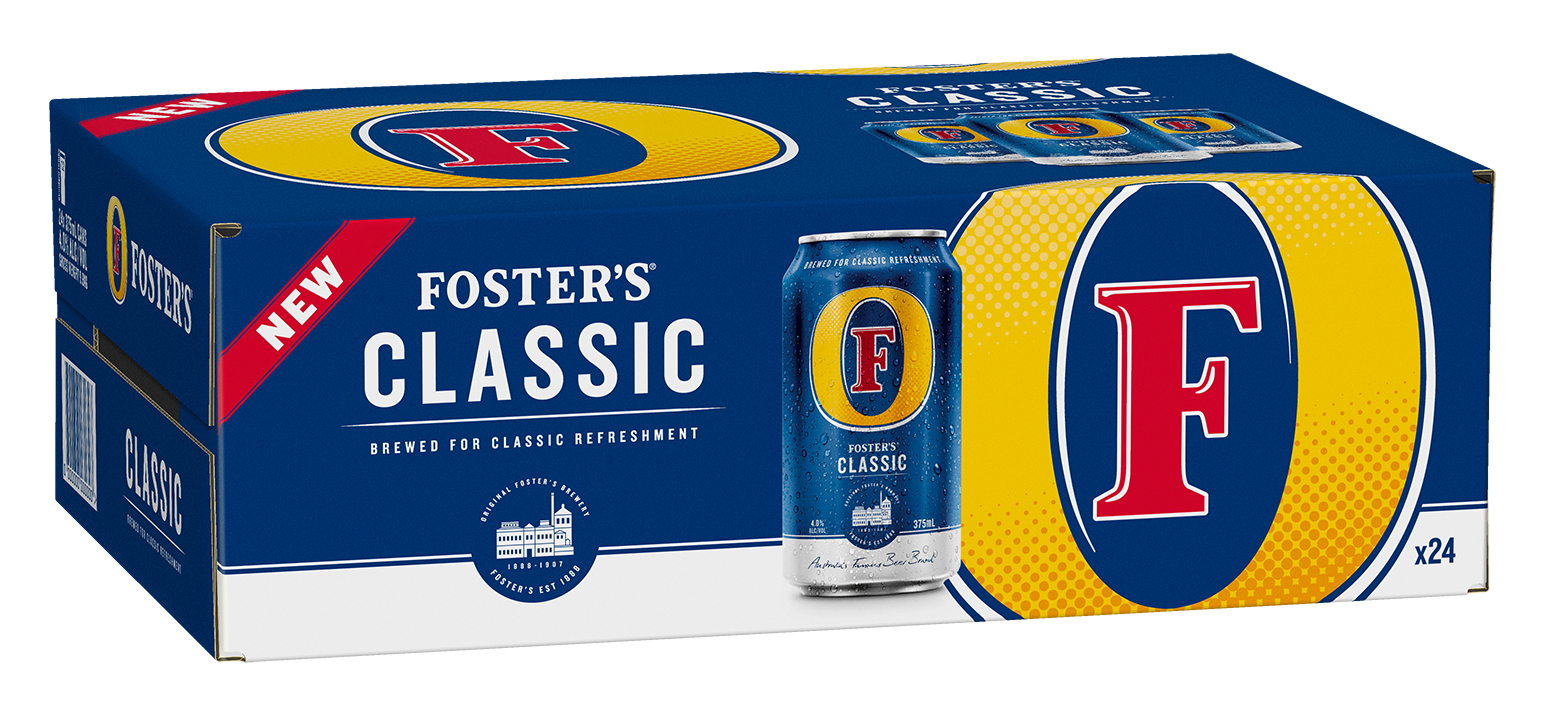
‘Iconic’ Foster’s makes a comeback

Foster’s, the beer brand “that helped put Australia on the international map” is being relaunched by Carlton & United Breweries.
In a media statement over the weekend, CUB said that Australian customers were looking “for a return to trusted iconic brands” and announced it would be boosting production of Foster’s Classic by 300 per cent in the coming months, from 500,000 litres a year to just over 2.5 million litres.
CUB will be offering Foster’s in a 30-can slab, which it called “value-for-money”, saying that it will then be competitive with affordable rivals.
Foster’s, once Australia’s top-selling beer, had declined to the point where it could only be found in ten bars and pubs across the country having been dubbed a ‘gimmick’ by pub owners.
CUB never totally gave up on the brand, and in 2015 attempts were made to revamp it as Foster’s Classic.
Now, CUB has determined that Foster’s is ripe for a renaissance in Australia after years of popularity in other countries, notably the United Kingdom, where rights to the brand are owned by Heineken and it is brewed in Manchester, rather than Melbourne.
Introduced in 1964 in the UK and popularised by actor Paul Hogan in a series of 1980s TV advertisements, Fosters was last year named the second most popular lager brand in the UK after Carlsberg.
CUB appears to be attempting to recreate this success in Foster’s home country, where it has been brewed since 1888.
“The COVID-19 pandemic has led Aussies to embrace nostalgia and yearn for simpler times,’’ said CUB’s head of classic brands Hayden Turner.
“Foster’s is an iconic brand Australians know and trust so it is really no surprise drinkers have told us they want more. We’re confident Foster’s can continue to grow again and develop a strong following like Melbourne Bitter and Reschs have done recently,’’ he said.
The renewed interest in Foster’s follows some hefty investments by the major brewer into what could be considered ailing or smaller portfolio beer brands.
CUB recently announced a multi-million dollar advertising campaigns for Asahi and Peroni, as well as bringing back Reschs Silver Bullets and teaming Melbourne Bitter with minimalist clothing brand Mr Simple.
VB for many years outstripped its nearest competitors in sales – accounting for every one in four beers sold in the early 2000’s – but has in recent times suffered from the cannibalisation of brands such as Great Northern, introduced in 2010. Last week, the brand announced it was teaming up with shoe brand Volley for a VB tie-up as it looks for new audiences.
The rise of Reschs, while no means stratospheric, has however proven that there is demand for the return of older nostalgic brands, which both Lion and CUB have tapped into. However, the resurgence of Reschs can be largely attributed to organic growth through movements like the Reschs Appreciation Society, rather than any increased spend from CUB which had largely ignored the brand until recently.



